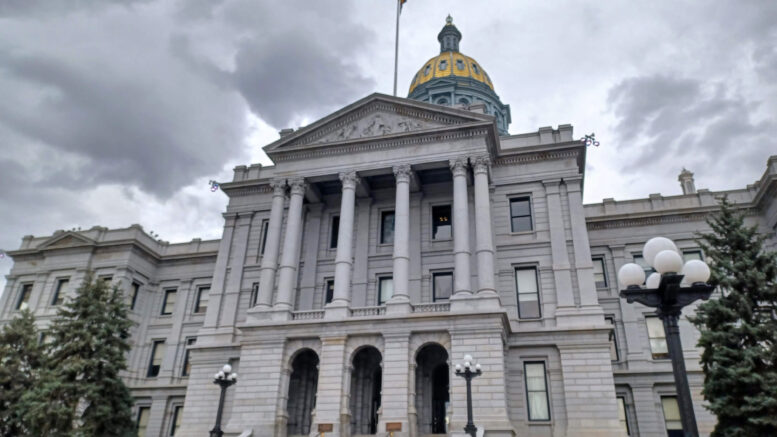Legislators squelched a plan Tuesday to make Colorado the first state to ban companies from using consumer surveillance data to set prices or wages, though the aborted effort signified that the state would continue to be on the frontier of technology regulation.
Colorado already has attracted the nation’s attention by becoming one of the first states in 2021 to pass a law protecting consumers’ digital data and then approving last year what is the most comprehensive artificial-intelligence regulation in the United States. Legislative leaders are expected to introduce a follow-up AI bill at the end of this week that will attempt to narrow the steps developers and deployers of artificial-intelligence systems must take to ensure the systems do not discriminate against individuals.
House Bill 1264, from Democratic Reps. Javier Mabrey of Denver and Lorena Garcia of Adams County, sought to break new ground again in limiting use of data that big companies like retailers collect on consumers to price goods on an individual-customer basis. While business leaders like Denver-based purchase-rewards company Ibotta said such data collection is essential to companies offering deals to customers and operating loyalty programs, Mabrey and Garcia warned that the practice has more nefarious uses.
Citing a Federal Trade Commission report, Mabrey said airline-ticket sellers can hike prices for people whose online searches reveal a desperate need to travel, and peddlers of baby goods can do the same for those whose search history indicates they are new parents. Employers could know to lower salary offers for people with a history of taking out payday loans, and gig-work drivers could get paid less based on demographics ascertained from surveillance data, he said.
Stout warnings on misuse of surveillance data

Colorado state Rep. Javier Mabrey, D-Denver
“The largest companies on earth are collecting our sensitive and private data to charge us as much as possible and pay us as little as possible, depending on where we work,” Mabrey told the House Judiciary Committee on April 2 while rolling out the bill. “We could be living in a world where you are charged more for a plane ticket because data collected about you suggests that you are headed to a funeral.”
HB 1264 would have barred companies from using automated decision systems to analyze personal characteristics, biometrics and behaviors to influence individualized prices or wages, explained Nina DiSalvo, policy director with the Towards Justice law firm. The bill offered several exemptions to continue allowing for practices like dynamic pricing based on supply and demand and individualized rates for some services based on consumer reports.
But the way the bill was written also would have prohibited services like those of Ibotta, which offers purchase-based savings opportunities for consumers who choose to sign up on its platform and helps companies develop reward programs. The AI-based collection of data to identify what interests its members is needed to make such offers, and HB 1264 could have barred Coloradans from participating in national-chain loyalty programs, several business leaders told the committee.
“The element of personalization has been a fundamental component of how paper coupons and digital offers have worked for decades, and it is an essential reason why brands make these dollars available to consumers in the first place, Ibotta Chief Legal Officer David Shapiro said. “We are concerned that this will inadvertently disrupt this ecosystem, resulting in the loss of valuable opt-in incentives for Colorado consumers.”
Bill could have nixed consumer, worker benefits
On the flip side of the pay-discrimination argument, the bill would have barred companies from using technology to assess employee productivity and determine raises, said Meghan Dollar, Colorado Chamber of Commerce senior vice president of governmental affairs.
Even more concerning for tech companies was the inclusion in the bill of a new private right of action that could have allowed consumers whose data was used to set individualized prices to file lawsuits under the Colorado Consumer Protection Act. This would have come while state leaders are still working on fixing AI regulations, leaving a field of regulatory landmines for companies to step in while trying to conform to new and changing laws, said Ruthie Barko, Colorado executive director for industry group TechNet.
Mabrey asked after the April 2 hearing for time to fashion amendments to deal with critics’ concerns, but when he came back before the same committee on Tuesday, he conceded that none of his efforts were going to get him the support to advance the bill to the floor. So, he asked the 11-person committee to kill HB 1264 — a request four Democrats still voted against, though they were outnumbered by compliant Republicans and other Democrats — but he and Garcia warned they don’t intend to give up on future regulations.
“Data is power,” Garcia told the committee. “The ramification of our inaction will therefore allow this discrimination of data to be far worse and will, in fact, lead to the tech overtake of our lives and our democracy.”
